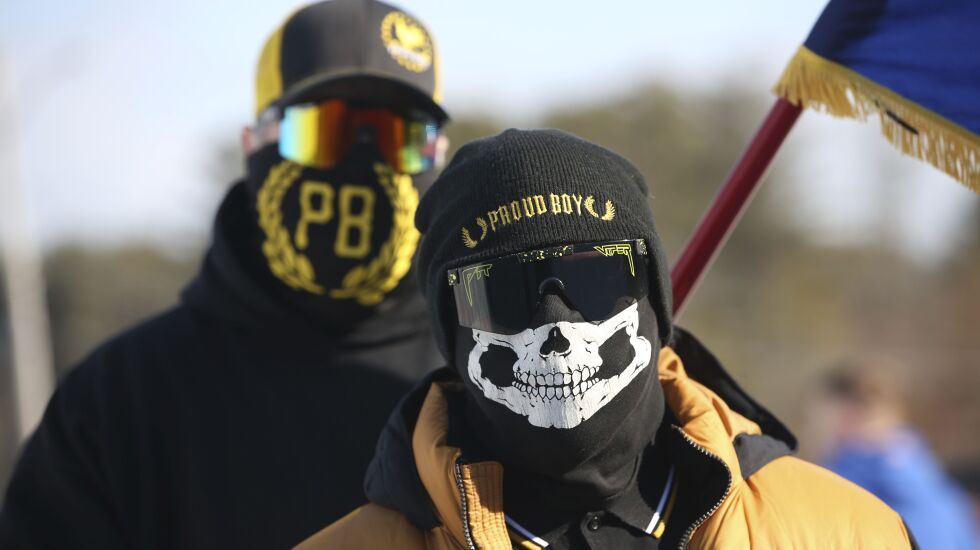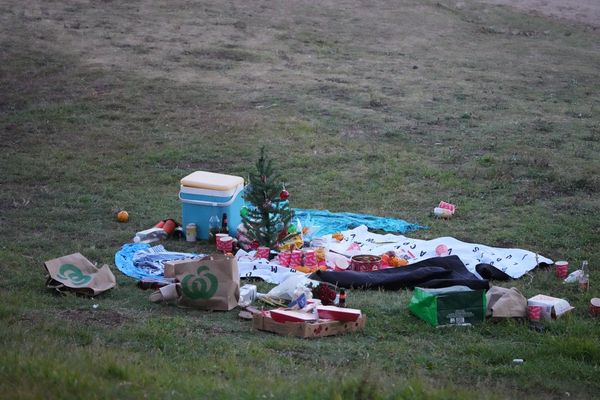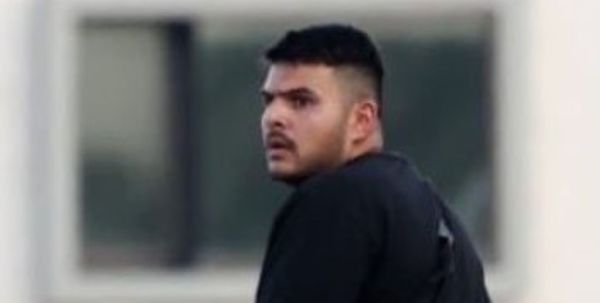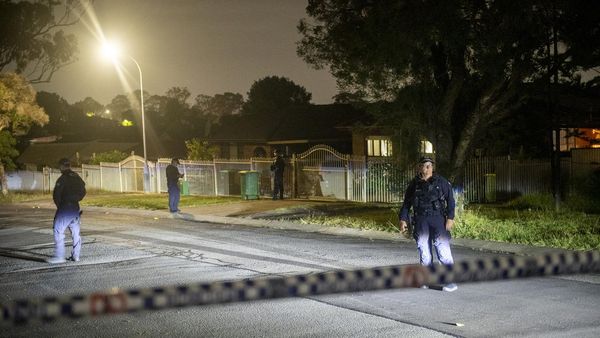
Chicago City Council members repeatedly expressed their frustration Wednesday as police officials gave conflicting, sometimes puzzling reasons why they have not moved more aggressively against officers tied to far-right groups implicated in the Jan. 6, 2021, Capitol riot.
“I’m exasperated like everybody else on this Council,” Ald. Andre Vazquez (40th) said after posing questions about Officer Robert Bakker, who is serving just a 120-day suspension following a lengthy investigation into his close ties to the neofascist Proud Boys.
“It is a joke that we’re spending this much time and money to have this conversation when everybody here … knows that officer should not be on the force,” Vazquez added at a hearing of the Public Safety Committee. “It’s a joke!”
The police department’s Bureau of Internal Affairs initially found that Bakker had failed to tell police officials about being interviewed by the Federal Bureau of Investigation. It recommended a five-day suspension.
But the city’s inspector general’s office pushed police officials to reopen the probe, and investigators sustained other allegations: that Bakker had made a “contradicting statement” about his activity in Proud Boys chat channels; that he had made a “false statement” about attending a Proud Boys barbecue; that he failed to report a bar fight during which he whisked away a Proud Boy; that he had discredited the department.
Ald. Matt Martin (47th) asked why Bakker hadn’t faced more serious discipline for making the false and misleading statements to the investigators — violations that can qualify for dismissal.
Yet Internal Affairs Deputy Chief Traci Walker repeatedly insisted there wasn’t enough evidence to prove Bakker had lied. Instead, a mediation agreement with Bakker only found he had failed to report the FBI meeting.
“I think this is ridiculous,” Martin said of the conflicting findings. “This makes absolutely no sense.”
‘Morphed into something it is today.’
Walker also raised eyebrows while discussing a separate probe sparked by a 2021 investigation by National Public Radio that found 13 active Chicago cops were included in a leaked list of Oath Keepers, an anti-government militia that aggressively recruits members from the military and law enforcement agencies.
She conceded the department had failed to look into most of the police officials because investigators were unable to identify them, and the news outlet wouldn’t cooperate with the probe.
Records obtained by the Sun-Times show that only three officers were investigated and none of them were disciplined.
In a quarterly report released in January, Inspector General Deborah Witzburg questioned the thoroughness of the investigation into one of those officers, Phillip Singto.
Witzburg said her office was told by police officials that “memberships into organizations in itself is not a rule violation.”
Walker said Singto admitted joining the Oath Keepers in 2010 or 2011 when he was already an officer. He became a member simply “to receive articles on the support of the Constitution,” she said.
“He joined Oath Keepers at the way it was then,” she said, claiming the group didn’t hold extremist views at that point. “It kind of morphed into something it is today.”
But Witzburg noted members of the Oath Keepers were convicted in a 2010 attempt “to take over a Tennessee courthouse to perform citizen’s arrests on local officials for failure to indict President [Barack] Obama on fraud and treason charges.”
Members of the group also joined an armed standoff with federal officials at a ranch in Nevada in 2014, she said.
The report by her office shows Singto remained a member for as many as four years.
“I welcome any further conversation about the extent to which that organization is consistent with the values of the Chicago Police Department,” Witzburg said.
‘More confused than when we first started’
It’s not the first time that top police officials have given puzzling testimony as alderpersons pressed for answers about the department’s handling of extremism within the ranks.
During a budget hearing in October, Police Supt. David Brown defended Bakker’s suspension while also saying the department had “zero tolerance” for officers involved in “hate groups.”
Internal Affairs Chief Yolanda Talley contended the investigation into Bakker would have looked “totally different” had the Proud Boys been designated a hate group by the FBI.
But investigatory records obtained by the Sun-Times show the FBI actually provided the police department with an equally alarming designation.
Just over a month after the investigation into Bakker was opened, an email between FBI officials was shared with the police department regarding “the Proud Boys and their association with the racially motivated violent extremism (RMVW) threat that the FBI works.”
In January, the Southern Poverty Law Center sent a letter to Brown and Mayor Lori Lightfoot calling for Bakker’s dismissal and warning there was no policy in place that “prohibits city employees or CPD officers from active involvement in white supremacist or extremist activities.”
Tina Skahill, executive director of the police department’s Office of Constitutional Policing and Reform, sought to ease concerns by telling alderpersons the department is working to revise certain policies.
That includes drafting an updated general order that prohibits police officials from associating with criminal organizations, broadening the scope to anyone “belonging or associating with an organization that is the antithesis of the mission and the policies of the Chicago Police Department,” Skahill said.
But Witzburg and Andrea Kersten, chief administrator of the Civilian Office of Police Accountability, said the department needs to do a better job enforcing rules that are already on the books.
Some alderpersons appeared disenchanted by the end of the hearing.
“We came into this hearing trying to get clarity on what the logic was for these officers to still be in the force after being clear that they were members of a hate group,” Ald. Rossana Rodriguez (33rd) said. “And we are even more confused than when we first started the conversation.”







